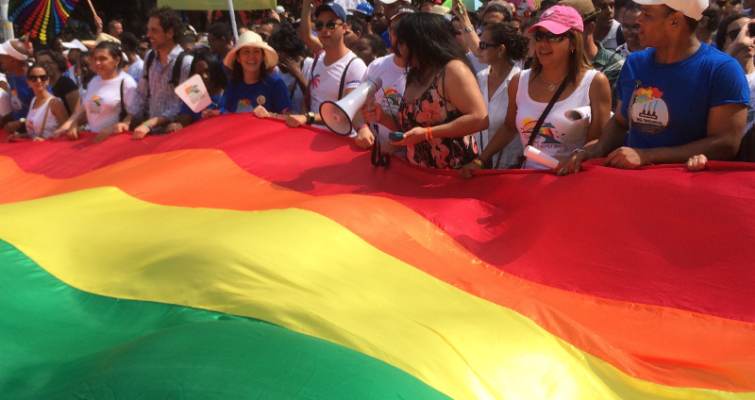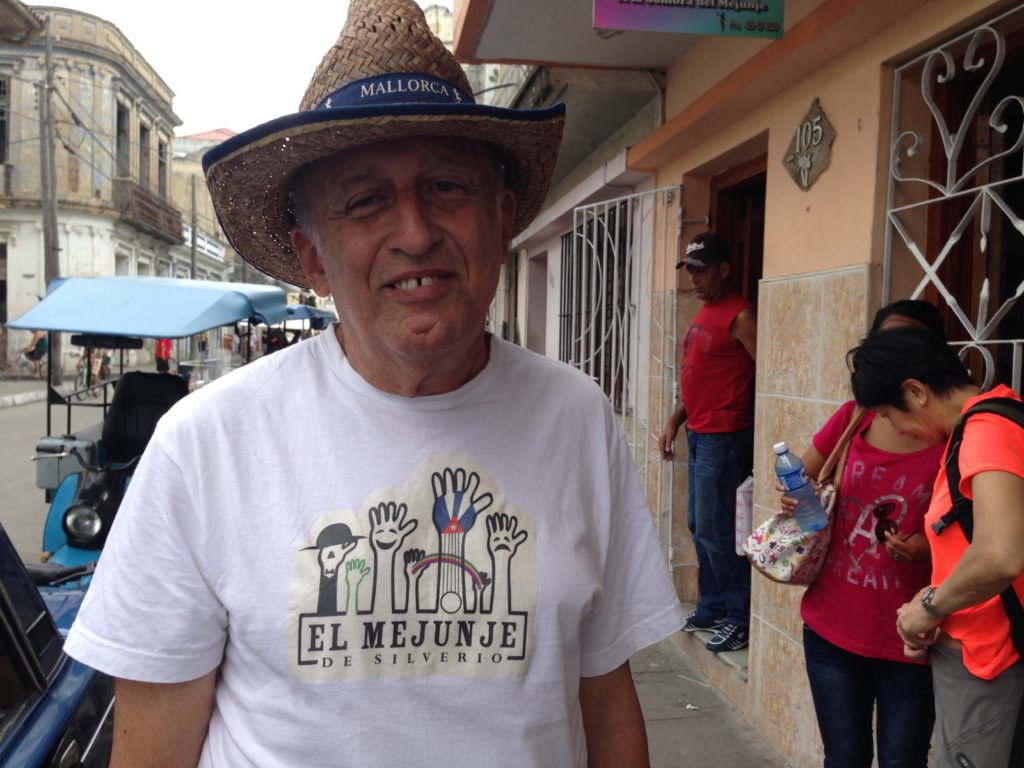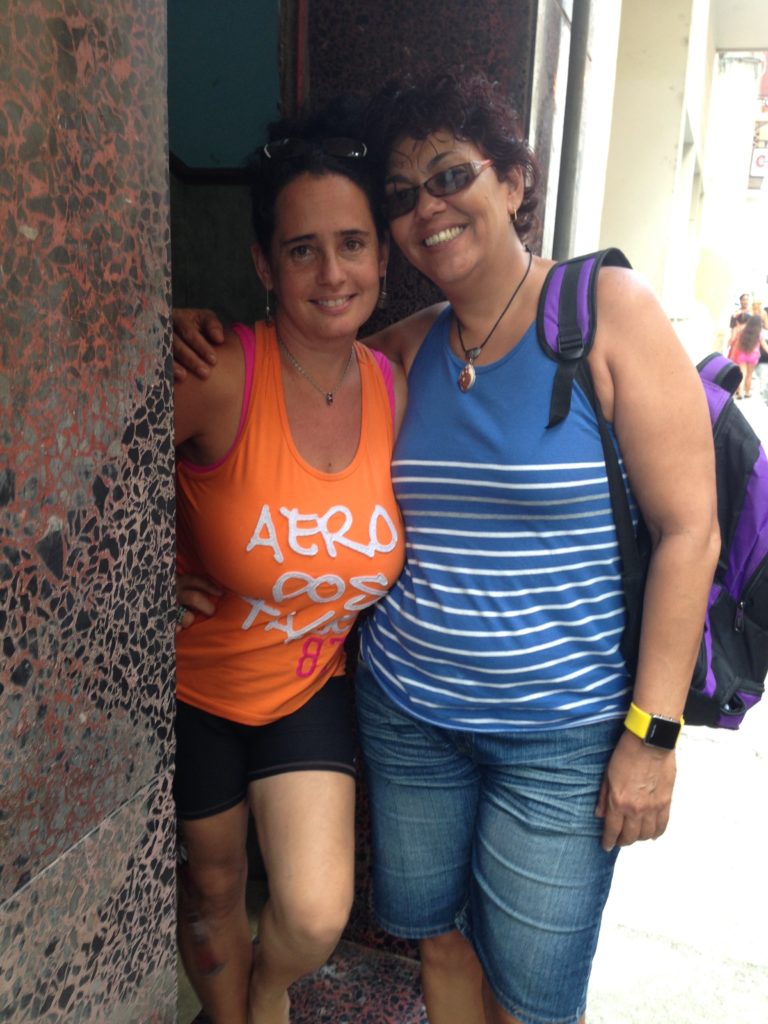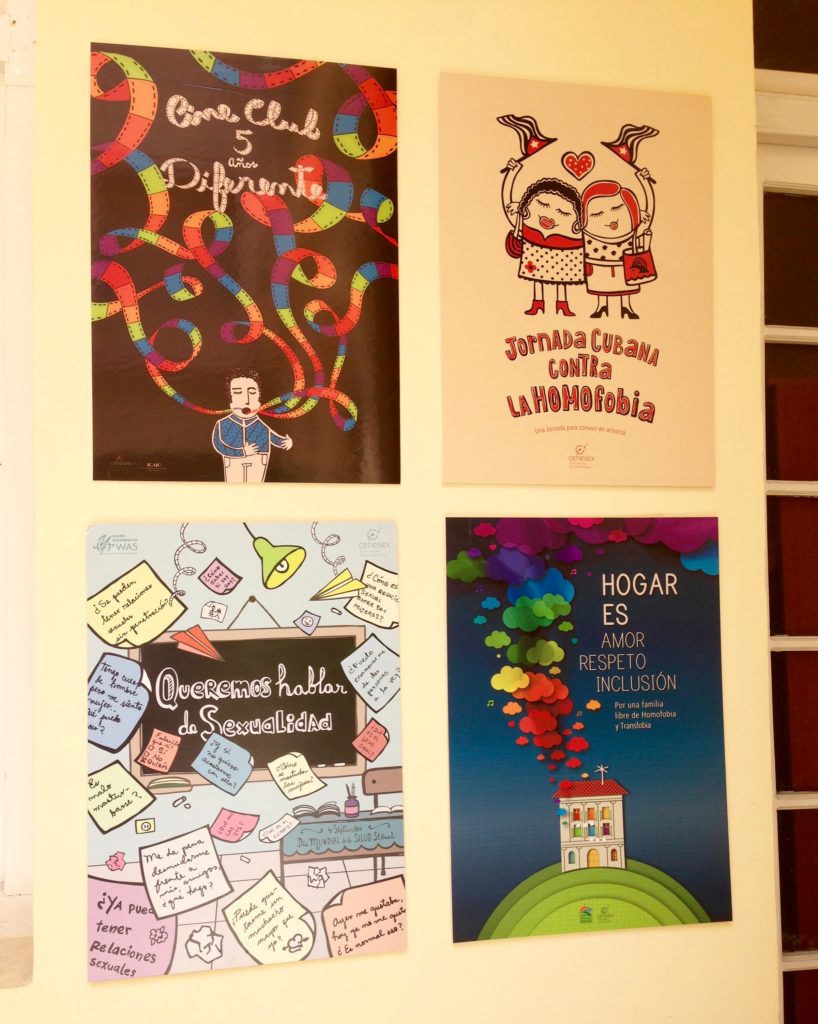
Being gay in Cuba
Someone just contacted me who’s writing an article about LGBT Cuba. He asked for my perspective on the LGBT community there and how it is for LGBT travelers to visit Cuba. After I talked with him, I realized others might also be interested in what I have to say. So here it is!
First off: My experience is that of a gay man, bilingual in Spanish, White, obviously a foreigner, and wealthy by Cuban standards. So I can’t tell you what it’s like to visit Cuba as a trans person, or a gay Black man who’s sometimes mistaken for a Cuban (yes, I’m talking about you, Jafari Allen!), or to grow up gay/bi/trans in Cuba. But here’s what I’ve experienced:
1. Nobody much cares that I’m gay
When people meet me, they relate to me primarily as a foreigner, presumed wealthy. (All foreigners visiting Cuba are presumed wealthy, and by Cuban standards most of us are.) If people concern themselves with me at all, this is typically why. Next, they find I speak Spanish and treat them nicely. Some get excited that I’m from the U.S. That’s what matters.
So I don’t treat my sexuality like a big deal either. People don’t seem to think it’s the most important thing about me.
At the same time, I don’t feel the need to hide it when relevant. For example, one vendor was trying to get me to buy something. She said, “Look, this dress would look beautiful on your wife!” Her mistake struck me as funny, and I replied, “My wife is a husband, and that dress would look awful on him!” It was a fun moment, and she and her colleagues all got a big kick out of it.
2. Except…
Some people do care that I’m gay. This could be a random gay guy who wants a gay friend or lover… but most often it’s a guy hoping that I’ll be his rich tourist sugar daddy, or it’s a sex worker looking for a john. There’s a lot of that going on because Cuba’s economy is so weak.
3. Sometimes people don’t want to know I’m gay.
The presumption that everyone’s straight is strong in some places. I once had an extended conversation with an older woman, maybe 60-ish. She’s from a small rural town where homosexuality probably isn’t so open. At some point I talked to her about my husband using the Spanish word esposo. She treated it like a language error, and every time she referred to my spouse, she used the feminine form, esposa. So for probably a ten-minute conversation, there I am using masculine forms and masculine pronouns, and she just kept using the feminine. I made sure to enunciate clearly, and my Spanish is good. So when she spent the whole time acting like I was misspeaking, at some point I realized she just wasn’t ready to hear it. We had a great conversation apart from that; she even invited me to a family birthday party the next day. But it was kind of bizarre.
4. LGBT Cubans experience a range of acceptance and rejection
Just as in the U.S., there’s stronger homophobia in some circles/families/communities/regions than in others. So you can absolutely find someone whose story is rosy, family always accepted them, etc. And you can find someone who’s worried about getting kicked out of the house if their family finds out.
I have one friend who’s doing his military service and talked about his fellow servicemen as his best friends. “We do everything together, and we’re like brothers.” He said they’d beat him up if they found out he’s gay. I said, “Wait a minute, you said you’re super tight, like brothers…” And he basically said they’re brothers, but if they found out he’s gay, the brotherhood would be over and they’d beat him up.
There’s no discrimination against LGBT people written into Cuban law. When Cubans want to put Cuba’s best foot forward, they’ll simply say, “There’s no discrimination in Cuba!” (Or racism, or sexism, etc.) Of course there’s still stigmatization, and bias, and individual-level discrimination stemming from that. But there’s no legal, institutional discrimination, in terms of who can belong to the Communist Party or hold what job or whatever.
Gay marriage is not legal in Cuba. I believe it’s unheard of for LGBT people to have and raise kids. Sex reassignment surgery for transexuals is officially covered by the national health program, so in theory it’s free for whomever needs it. I don’t know if all the people who need it actually get it, or if it’s more policy than practice. But still, it’s a nice policy.

Ramón Silverio, founder of El Mejunje, worked hard to create a famous safe space for LGBT people and other misfits in the city of Santa Clara
5. There’s ugly history
Cuba has some ugly history with regard to LGBT people. During the 1960’s and 70’s, homosexuality was considered incompatible with the Revolution. LGBT people faced heavy discrimination, harassment, and even internment for “rehabilitation” in forced labor camps. In the 80’s and 90’s, discrimination and harassment continued, even as some official voices of Cuban society began to reconsider the country’s understanding of gender and sexuality.
6. There’s lovely history, too
Cuba’s LGBT community has produced amazing art, music, and film. Numerous Cubans, both LGBT and allies, have worked for the inclusion of LGBT people in society. The last several years, Cuba has celebrated the Cuban Day Against Homophobia and Transphobia on May 17, the International Day Against Homophobia and Transphobia. And some friends of mine became the first same-sex couple to get married in a public ceremony, just as a symbolic act. Presiding over the wedding was none other than Mariela Castro, the leading voice for LGBT inclusion and equality in Cuba. Her agency, CENESEX (the National Center for Sexual Education), works on a number of issues around gender, sexuality, and relationships, including LGBT issues.
7. The LGBT community can be out and proud
With public marches and events, LGBT bars and clubs, awareness campaigns, and so on, the community is out of the closet. Films with LBGT themes are shown on TV. The national news covers the annual Day Against Homophobia and Transphobia. There was a time in Cuba’s history when it was all underground… but not anymore!






Write Your Comment